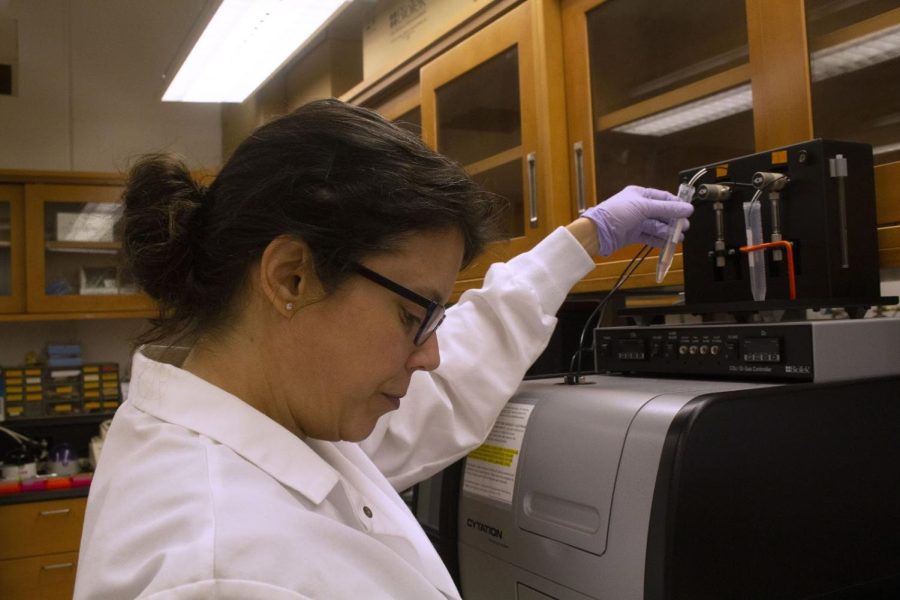GSS research award grant helps graduate student receive funds to finish project
After receiving a $2,000 research award from the Graduate Student Senate, Lydia Heemstra was able to afford the final component for her dissertation obesity research.
Heemstra is a Ph.D. candidate in biological sciences with a specialization in cell biology and molecular genetics. She had been working as a laboratory technician for years with Colleen Novak, an associate professor of biological sciences and research advisor to Heemstra, when the rats they wanted to use as test subjects increased in price and they needed extra money.
“Our lab has been using (rats) for many, many years so using them is…sort of expected. However, the breeders of these rats moved to a different location and the cost for the rats and transport of them increased greatly,” Heemstra said. “So that is why it was so amazing that GSS was able to give us this grant because we may not have been able to this experiment at all.”
Heemtra’s research looks at how a change in body temperature affects how the body handles calcium. She studied this by using what she identifies as “unfit” and “fit” rats and raising their body temperatures by exposing them to rags covered in ferret odor.
“One way to introduce predator threat is give a rodent the odor of a predator,” Novak said. “I asked around to some friends who do behavior (studies) and they recommended ferret odor because it really gets right to the rats. They are a natural predator (and) prey pairing.”
After exposing the rats to the odor, the body temperature of each rat was measured through sensors that had been placed near the muscles. The rats were then euthanized in order to remove the sensors and so Heemstra could analyze the rats further.
Since completing the testing with the rats, Heemstra has been analyzing the muscles of the rats in order to see how much their body temperatures rose and how it affected their calcium levels. After she is able to collect all of the data, Heemstra hopes to be able to be able connect her findings with other research to expand what is known about obesity.
“So far there is not very much published on this topic at all,” Heemstra said. “So if we can continue to generate more data and publish, then other labs can take off from there and tie it into related research that ties into it.”
Rachel Karas covers graduate education and research. Contact her at [email protected].



